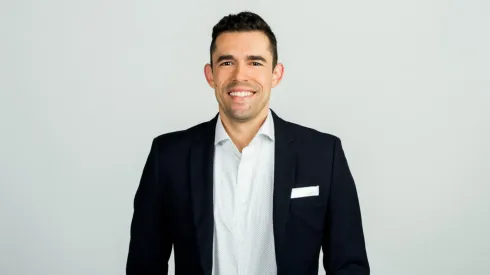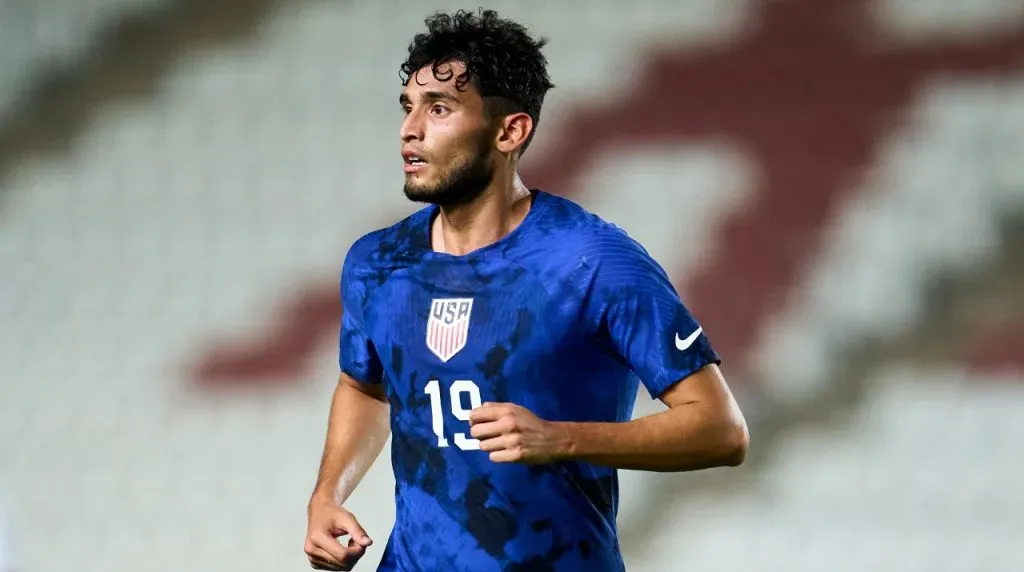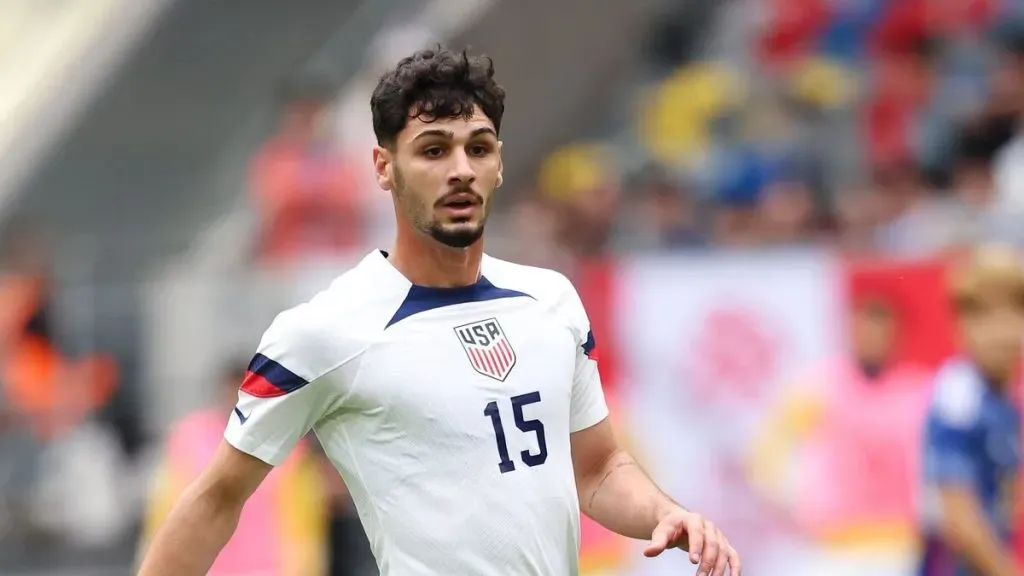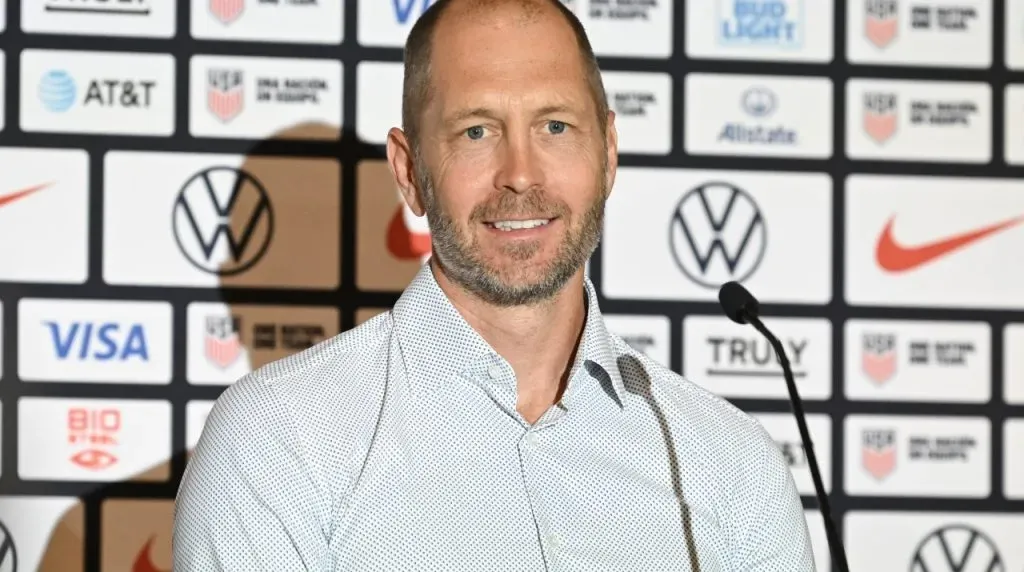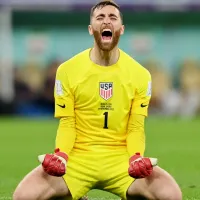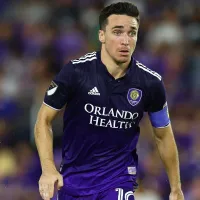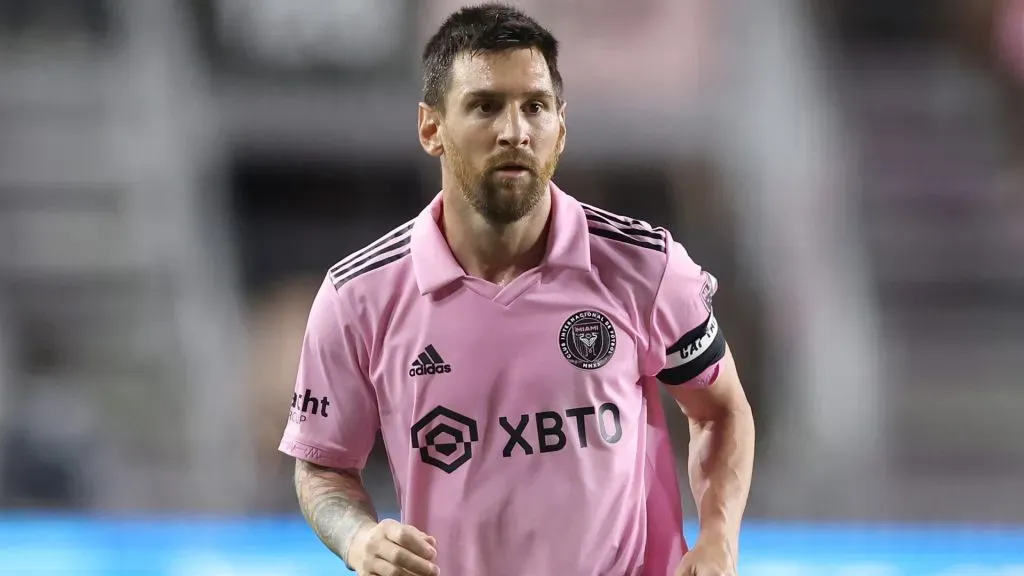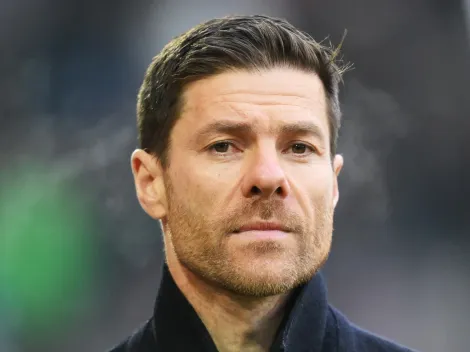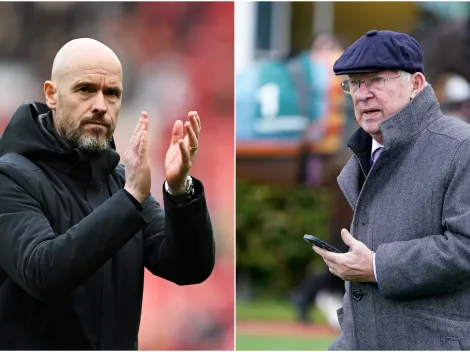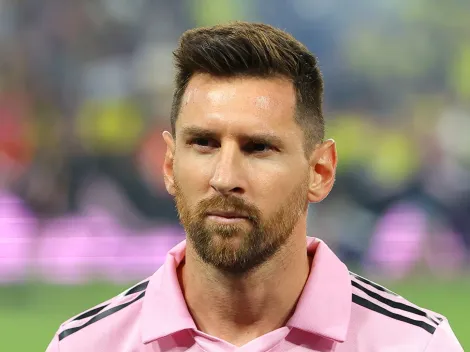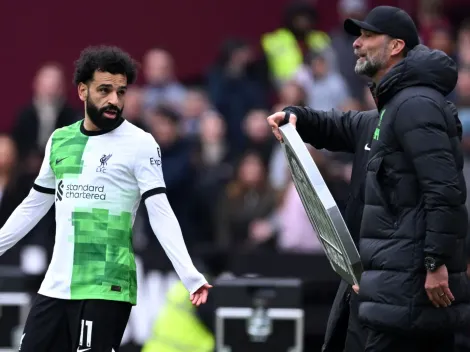Herculez Gomez has been there and done that, an MLS player, USMNT player, and American abroad, the former Liga MX golden boot has a unique perspective about MLS and US Soccer.
Gomez has been one of the biggest voices on the lack of inspiring play of the USMNT recently, as well as pointing the finger on some MLS clubs who still seem to be running as MLS 2.0.
In an interview with Bolavip, Herculez Gomez was candid about where he thinks the US program is at, what positions are up for grabs, and his view of the whole MLS and Apple TV project.
Bolavip: What are the main takeaways from the USMNT’s not so inspiring two leg series with Trinidad and Tobago?
Herculez Gomez: Ufff. This team under Gregg Berhalter still needs some refinement. The (USMNT) needs a bit of refinement as to who they are away from home, not that it should be worrying to anybody, they are going to play the Copa America and World Cup at home, so it’s more about how you perform away from home against the bigger teams not so much the smaller nations we are accustomed to.
There are still some positions up for grabs, the player pool still has an issue staying healthy, so what do you do with all the increased games when an important player gets injured or not available? Who can step up? I don’t think some positions are as solidified as people might think.
I think there is still a nine issue and some important players who should be playing at the club level need to consistently play at that level, for example Matt Turner is now in that boat.
BV: The fanbase, especially the one on X, gets hung up on names, or where the players play, at times they seem way too invested on certain players making it, but the realities are that many players may not make it to 2026 and few will reach three World Cups with the USMNT, how important is it to educate the fan that the nature of the game is this constant change?
HG: I don’t think it’s important for the fans to know that I think it’s important for Gregg Berhalter to know that. A national team is a collection of the best players you have at that moment. There are few players that you have penciled in, out and out starters, or have equity to their name, beyond if they are doing well at the moment or not.
The rest of the mortals, so to speak, have to be in a good moment, if we go to what’s owed, Josh Sargent and Jesús Ferreira were World Cup players, and right now see themselves behind Folarin Balogun and Ricardo Pepi, who were not at the World Cup, who don’t have the amount of goals or important games with the national team. People should take that into account, the national team is the best collection of players at the moment, and Gregg Berhalter needs to do that also.
It will be an ever changing and fluid national team under Gregg Berhalter, and I think he has a pretty good idea of who his base is and what it should look like but there are important pieces that can come along the way and fight for those up in the air spots.
BV: Today which spots do you think are truly up for grabs?
HG: I would say the two biggest spots up for grabs is the nine position, that has to go with the man of the moment, whoever is in the best form. It may change depending on the opponent. Another has to be the six position, without Tyler Adams that’s the position most up for grabs.
I think it’s a necessity for Gregg Berhalter to find a successor for Tyler Adams if he’s not available in those tournament settings.
Folarin Balogun has proven to be a very good striker for Monaco and at times he has proven to be very dangerous with his run of play and his movements, and how crisp he is with that movement and how decisive he can be with his runs and finishing. But you’re not always going to play those kinds of teams where he will have that room.
So, it’s common to be a very good club player and not a great national team player and that’s the balance, you need players who can prove it at the club level but can do it internationally also.
Ricardo Pepi right now has every right to feel like he’s in the mix and deserves an opportunity. Josh Sargent, I always said, is the most talented nine in this pool.
There are a lot of players that can still have a say in this nine battle (Brandon Vázquez, Daryl Dike), fans think it’s highest profile player he’s penciled in and no, when it comes to the nine position it’s who’s putting the ball in the back of the net, who is helping the team win.
BV: For Gregg Berhalter is it Copa America or bust? And if so, what would be a successful tournament?
HG: I don’t think it’s Copa America or bust, I don’t think Matt Crocker will make a move like that. This is Matt Crocker’s first big move, (Gregg Berhalter) was his hire, an extensive worldwide search and you came back to the guy you already had, they spent lots of money on resources, so I don’t think (Crocker) pulls the plug on a bad Copa America.
That being said, it’s not about just having a good performance against the likes of Uruguay, Brazil, or Argentina. Americans in any sport are not about moral victories, we are about victories. So, when you look at Copa America you’ve already been to a semifinal (1995 and 2016), it’s not just about moral victories and feeling good about yourself, it’s about doing something bigger than what you already did.
BV: Why didn’t US Soccer go for a change from Gregg Berhalter? If the room was read, public opinion was against his rehire, but it seems like despite all the resources put forth, it seems that the federation took a stance, that they will die with what they know and not so much take a gamble?
HG: That’s a question for Matt Crocker, from my vantage point it was more difficult to bring Gregg Berhalter back than find a new coach. The easy decision was to move on, for everybody, why they brought him back, Matt Crocker and only Matt Crocker has that answer. The players, a vast majority of those leaders wanted Gregg Berhalter back.
So, whatever the parameters were, or criteria was, Matt Crocker believed in Gregg Berhalter no matter how easier it would have been to move on.
BV: Why with all their resources the perception is that US Soccer runs like a mom and pop shop? That no matter what they will do things their way.
HG: I don’t think there is a federation in the world that is immune from criticism or doesn’t have their own issues, I mean Argentina is champions of the world and that federation at times is in shambles.
Look at Mexico, a league that is over 100 years old, a national program recognized around the world, because of their fanbase, because it’s one of the most followed national teams around the world.
They have their set of issues if not worse, Uruguay has their issues, you can go down a laundry list of federations and they all have issues. It’s a symptom of FIFA.
That said with US Soccer, there is a feeling that they can do it their way, the American way, and that’s slowly but surely been somewhat eroded, you can see that with MLS, with the idea that they have to be global participants in the global market.
US Soccer is doing that as well with Matt Crocker, maybe what they had inhouse wasn’t good enough, that being said Crocker went back inhouse, so he saw something in Gregg Berhalter that makes him believe that he is the correct hire to take this program to heights they never been to.
US Soccer has always had big plans but the work is not done in board rooms saying “we will win the World Cup” it’s done grassroots on the field.
MLS and Television
BV: Today the best USMNT players play in Europe, and at times MLS has been criticized, unjustly, where does MLS fit today in the USMNT ecosystem?
HG: I mean it’s pretty clear with the amount of players playing in Europe. What I will say is a vast majority of those players at some point came through MLS circles. So that should be the goal of any domestic league if you are not a top European league is to somehow be a launching pad for those players to get there.
I think MLS is starting to do a very good job of that, I remember when I first played in MLS, I was the first generation of the developmental league. It’s come a long way, MLS has academies that are now free, MLS Next, it’s now a valuable piece of the pyramid, but not the place of the pyramid it used to be.
It used to be the majority of your players used to play in MLS, so US Soccer was dependent on that league to increase its level, that’s not the case anymore. It’s a good steppingstone for these players.
BV: On the media side, how was this first year of MLS outside of the hands of ESPN, Fox, and the major networks?
HG: At ESPN I work in two different worlds, Spanish in Deportes and ESPN English, it has been interesting, Apple have done a tremendous job with what they have, but sometimes it feels that it’s out of sight and out of mind. There is no programing catered around MLS games, you do have the whip around show MLS 360, and pre and post games.
Before you had TUDN, ESPN, and Fox and the shows that they had on those stations, if it was an important game coming up, those shows catered around that, but now, since they don’t have that kind of programing you need to go to the MLS website to even know that game is coming up. It’s not part of Futbol Picante and having a discussion on Carlos Vela vs Chicharito Hernandez or Futbol Americas and we are dissecting the games with an interview with Jordan Morris or Seba Blanco.
You have to be a diehard MLS fan or be in that city to know some of these games are coming up. Messi has changed it a bit, but I miss having those programs around the league and I think the fans do as well.
BV: What do you make of the possible rule changes in MLS next season, the 4th DP, increase in cap, where does MLS go from here in regard to roster building?
HG: I think the training wheels have been off of MLS for a while, regardless of who they spend it on, they are spending some money. It’s about being intelligent with the way you do things.
I had Walker Zimmerman on the Vamos podcast recently and I asked him why LAFC has so much turnover, he said that the way MLS contracts are structured it’s impossible to keep quality players. If you have a good season there are bonus escalators and the players want more money, and you can’t keep many of those players on the same team.
LAFC has no choice, either they pay these players or have them move on or sell them and get something for them. I think MLS will loosen the purse strings but smartly, I don’t want to see a league where it’s the Premier League and City is fighting for another championship and Bundesliga where again Bayern is in first.
You have to do it in a way where owners can keep up and the league can compete abroad. If you want a better league the easiest route is money, they just need to be intelligent about it.
BV: Next year MLS will be the Messi year, 2024 is set up for Messi, but the bigger question is how does MLS avoid being a one trick pony? Better storytelling?
HG: Well, it can be a one man show it’s Messi right? He is his own show, I think it comes down to storytelling, it is important, the NBA has done an amazing job on storytelling with its players.
MLS has to do a better job of telling stories and find people who relate to who is trying to tell these stories too. What I mean by that is that a vast majority of the league is Spanish speaking or Latino, you have to find a way to tell their stories to the Anglo community as well.
MLS needs to transmit why they are here, what they want to do, where they want to be, their dreams and aspirations, and make them relatable.
I go back to the original programming: people love their team, but other people don’t know their team, so you need people to realize who their rivals are, what they’re watching, and why they should be interested.
Max Kellerman of ESPN, he’s got a dig on hockey, every hockey team sells out their arenas, but nobody watches them, MLS can’t go down that lane, they need people tuning in in their own country and around the world. They need to be invested TV-wise and if they are the rest is going to come.
*Some responses edited for rhythm and length.
